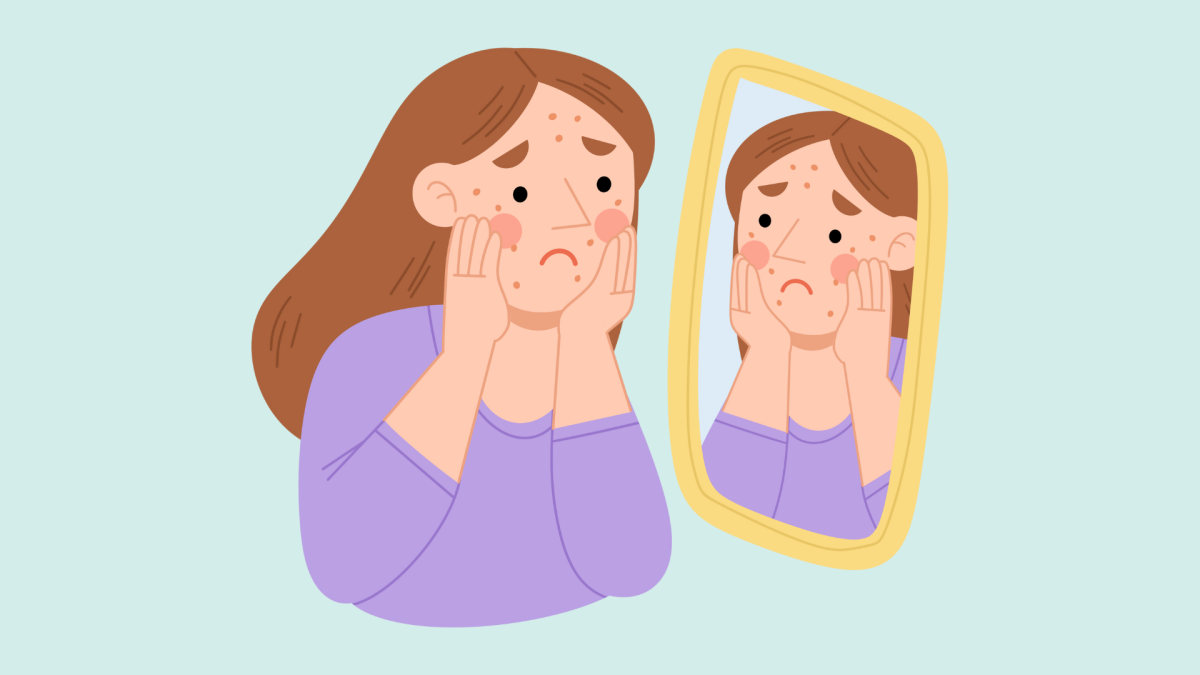In the United States, November is considered National Healthy Skin Month. This awareness month was made to encourage everyone to take care of their skin to help prevent skin cancer and other skin diseases.
One reason it is important to take care of skin is that it provides a barrier against germs that can get people sick. The skin keeps people from getting hurt, due to nerve endings to detect pain.
Expensive skincare is one of the most popular trends these days, especially with teenagers and younger kids. Issues with the skin usually do not arise until the teenage years, with acne being one of the most common in teens. Hormonal imbalances and changes that come with adolescence can overstimulate the skin’s oil glands, flushing dead skin cells, dirt, makeup, sweat or access oil into the pores. According to Nemours TeensHealth, this inflames the pores and causes acne.
Teenagers may have more trouble dealing with acne than other age groups. One reason for this is that teens especially can feel insecure about themselves or feel peer pressure from other kids at school to fit in.
This desire to fit in can be strong in teens, and sometimes the people who fit in make fun of people who do not, causing those people to feel bad about themselves. A lot of times, teenagers’ acne is caused by hormonal imbalances, which are normal and not easily fixed, making it hard to get rid of acne.
Sometimes, bullies make people feel bad about how they look. This can significantly lower students’ self-esteem and even cause depression or anxiety. Oftentimes, people with depression have trouble taking care of themselves or experience a lack of energy, worsening hygiene and making the skin more prone to acne.
Teens who get bullied for their acne or feel insecure about it could also suffer from Body Dysmorphic Disorder (BDD). BDD is a mental disorder causing very extreme insecurity, anxiety and obsession with physical appearance.
Even if the flaw the person is insecure about is very minor or even imagined, they can obsess over it for hours a day, causing extreme mental health issues. “Acne can have a huge impact on a teen’s emotional health… Acne can affect their self-esteem, making them feel self-conscious and unattractive,” Ms. Barbara Martz, the school’s prevention specialist, said. “ It can cause social anxiety, feelings of embarrassment, anxiety, and even depression. Teens with acne may become the target of bullying or teasing by their peers, which can cause emotional damage. All in all, acne can cause issues with self-esteem, social anxiety, and bullying.”
If someone feels this way about their acne, they may buy or use an excessive amount of skincare products or do complex skincare routines obsessively.
Some people might think that the more one washes their face and uses products that treat acne, the better it will work automatically. This is only true if they are used right. Overusing treatment or overwashing the face can dry out and irritate the skin, hurting the skin even more than before.
A lot of teenagers suffer from acne and it can be difficult to treat. Some people have acne in their 20’s or even in their 30’s. One must remember that they are not alone and there are many people who they can talk to if acne is causing their mental health to suffer. One can talk to friends, family, therapists or other trusted adults if they struggle with insecurity from their skin condition.



